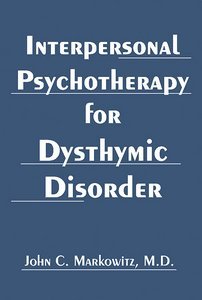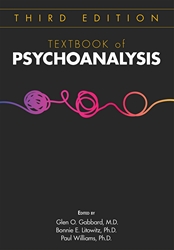Interpersonal Psychotherapy for Dysthymic Disorder
View Pricing
Description
Interpersonal Psychotherapy for Dysthymic Disorder is the first manual to examine the use of psychotherapy for dysthymic disorder, or chronic depression. This useful, innovative guide describes how to adapt interpersonal psychotherapy (IPT)—a proven, time-limited therapy that has benefited patients who have other mood disorders and psychiatric syndromes—to treat dysthymic disorder. After discussing the characteristics of dysthymic disorder, the basic principles of IPT, and the available treatment data, this volume offers clear, coherent treatment strategies for working with this potentially difficult, yet treatable, disorder. A useful adjunct to training and supervision by certified clinicians, this book contains numerous case examples that vividly illustrate how to use this treatment approach. This text also includes an appendix with patient education materials, the IPT Problem Area Rating Scale (IPARS), and the IPT Outcome Scale.
By using this text, therapists can improve their patients' life functioning and provide a more comprehensive and effective treatment.
Contents
- Preface.
Overview of Dysthymic Disorder.
Dysthymic disorder. Treatment of dysthymic disorder.Interpersonal Psychotherapy of Dysthymic Disorder.
Overview of interpersonal psychotherapy. Interpersonal psychotherapy for dysthymic disorder (IPT-D). Case examples. Complex cases of dysthymic disorder. The postdysthymic patient. How long is long enough? For family members and significant others. Appendix. Literature cited. Index.
About the Authors
John C. Markowitz, M.D., is Associate Professor of Clinical Psychiatry at Cornell University Medical College and is the Director of the Psychotherapy Clinic at the Payne Whitney Clinic, New York Hospital, New York, New York.
Related Products
Carousel Control - items will scroll by tabbing through them, otherwise arrows can be used to scroll one item at a time








